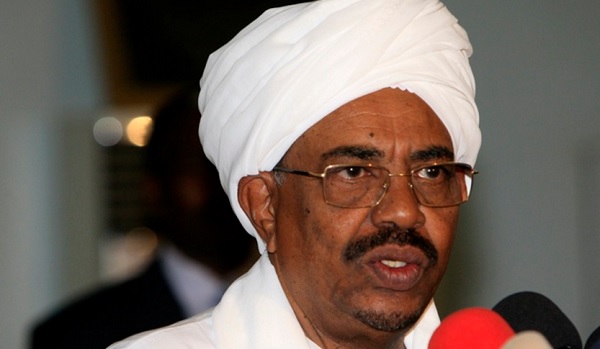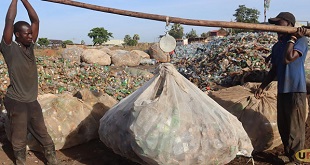
Khartoum, Sudan | AFP | Sudanese President Omar al-Bashir on Monday appointed new oil and foreign ministers in a major cabinet reshuffle that saw four other ministers changed amid a worsening economic crisis, state media reported.
The reshuffle comes weeks after Bashir sacked his previous foreign minister Ibrahim Ghandour following his comments that he had been unable to pay diplomats for months due to a shortage of funds.
The cabinet overhaul was approved by Bashir’s ruling National Congress Party at a meeting late on Sunday, the official news agency SUNA reported.
In a presidential decree on Monday, Bashir replaced his oil, interior, agriculture, youth and sports and justice ministers and also announced a new foreign minister replacing Ghandour, SUNA reported.
The reshuffle saw Al-Dierdiry al-Dhikheri named as the new foreign minister, Ibrahim Hamid as interior minister and Azhari Abdallah as oil minister.
Dhikeri, former Sudanese ambassador to Uganda, had been a member of Khartoum’s team that negotiated the separation of south from the north in 2011.
Hamid, an aide to Bashir, had previously headed the interior ministry from 2008 to 2015.
On Monday, Bashir also changed five ministers of state and eight governors, SUNA reported.
The sweeping ministerial changes come amid a worsening economic crisis in the East African country.
Last month Bashir fired Ghandour — who led negotiations with Washington to lift a decades-old trade embargo on Khartoum — after he told parliament his diplomats had gone unpaid for months.
Before Ghandour’s sacking, Bashir had also replaced the head of Sudan’s powerful National Intelligence and Security Service (NISS).
– Washington blacklist —
For Dhikeri, the main challenge ahead was how to steer negotiations with Washington for removing Sudan from the United States’ list of “state sponsors of terrorism”. Sudan is in Washington’s blacklist along with Iran, Syria and North Korea.
Although Washington lifted the sanctions on October 12, it kept Sudan in the SSTL, which Sudanese officials say is hampering the country’s economic revival.
Sudan has been facing financial difficulties amid an acute shortage of hard foreign currency that has seen the country’s economic crisis further deteriorate.
The foreign currency shortage has seen the pound plunging against the dollar, forcing the central bank to devalue it twice since January.
Expectations of a quick economic revival were high in the aftermath of the lifting of Washington’s sanctions imposed since 1997.
Washington had imposed sanctions for Khatrtoum’s alleged backing to Islamist militant groups. Al-Qaeda founder Osama bin Laden lived in Sudan between 1992 to 1996.
But officials say the situation has not changed at all as international banks continue to be wary of doing business with Sudanese banks because Khartoum continues to be in the “terrorism” blacklist.
Sudan’s overall economy had been hit particularly hard after the south separated from the north, taking with it about 75 percent of oil earnings.
A surging inflation rate of about 56 percent, regular fuel shortages and rising prices of food items have often triggered sporadic anti-government protests in Khartoum and some other towns.
 The Independent Uganda: You get the Truth we Pay the Price
The Independent Uganda: You get the Truth we Pay the Price



